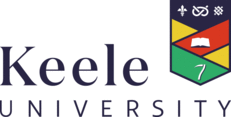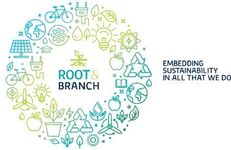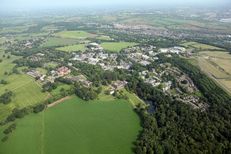Optimising the impact of education and research by utilising the campus as a test bed for real-world teaching, learning and research
What advice would you give an institution staff member keen to get this started?
“Talk to people - everything comes down to relationships, it is the most valuable time, time you put into people is the time best spent.” - Zoe Robinson, Director of Education for Sustainability
The University’s unique self-contained campus location with over 600 acres of grounds provides an ideal setting to establish itself as a test bed for real-world teaching, learning and research opportunities. Keele University have a number of Living Lab examples and case studies. Each example is different by nature demonstrating the diversity in approaches but with that comes variation in impact, outcomes, outputs and degrees of alignment with a ‘true Living Lab’.
Initiation of Living Lab style partnerships for teaching, learning, research, and business and community engagement happen in a range of ways at Keele. There is a model of distributed leadership around living labs, with no single member of staff who coordinates or facilitates Living Labs, and with different parts of the university using the term in slightly different ways. There are examples of leadership from academics working in partnership with estates and other professional services, and students themselves suggesting innovative approaches to tackling sustainability challenges by using the campus as a test-bed. Estates and Research and Partnership Development staff also lead on ‘living lab’ projects, for example Keele’s Smart Energy Network Demonstrator, Europe’s largest test-bed for sustainable energy research, was developed in collaboration with industry, and drives smart energy innovation in local business and through research.
This project also has significant potential for developing educational outcomes from the individual student, to the whole campus community scale.
An example of a more educationally focussed ‘living lab’ approach is the elective module, ‘Greening Business: Employability and Sustainability’ which has run for over 10 years and is open to all foundation and first-year students in the university. The University’s professional sustainability staff contribute to teaching on the module and drive the projects that students carry out. Students work in groups, meet with sustainability staff, and present recommendations to the University about ways to enhance sustainability at the university based on exploration of what is happening at other institutions as well as research at Keele. Staff take on board learnings from these student projects and the module acts as a catalyst to empower students as change makers.
"In my view the power in the Living Lab approach is in the potential to maximise the impact across both the education and research missions of a university, as well as in the benefits of working with the business and wider community - but to do this effectively we need to ensure that all these stakeholders are represented in discussions from the outset" - Zoe Robinson, Director of Education for Sustainability
Keele acknowledges that there is still room for greater integration of applied learning and research opportunities in the taught curriculum and aims to further develop the Living Lab approach and ensure that research and educational outcomes are maximised from all living lab projects. There is now interest in living lab approaches from the Estates and Development Directorate, the cross-university (research) Institute for Sustainable Futures, the Keele Institute for Innovation and Teaching Excellence, as well as the Education for Sustainability team, making this fertile ground for the required cross-university collaboration.







 Except where otherwise stated, content on this site is
licensed under a Creative Commons Attribution 3.0 License.
Except where otherwise stated, content on this site is
licensed under a Creative Commons Attribution 3.0 License.
